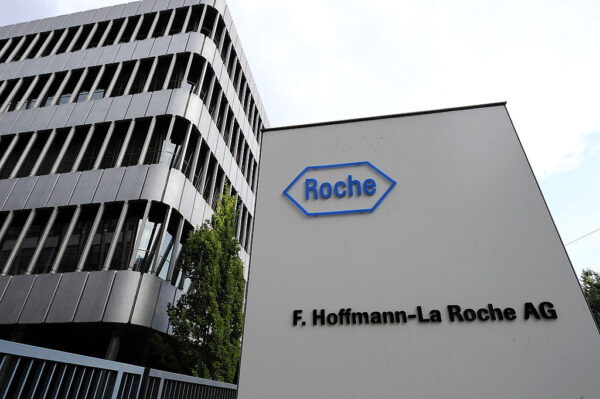
A Roche drug that initially won accelerated approval for treating advanced cases of an aggressive type of blood cancer is now approved for use as a first-line therapy, enabling the medicine to reach more patients and potentially achieve blockbuster status. The regulatory decision announced Wednesday converts the status of the drug, Polivy, to full FDA approval.
Polivy treats diffuse large B-cell lymphoma (DLBCL), a cancer that starts in white blood cells called lymphocytes. DLBCL is the most common form of non-Hodgkin lymphoma in the U.S. Standard treatment is Roche’s rituximab along with three chemotherapies and an anti-inflammatory drug, a regimen typically shortened to R-CHOP.

With the Rise of AI, What IP Disputes in Healthcare Are Likely to Emerge?
Munck Wilson Mandala Partner Greg Howison shared his perspective on some of the legal ramifications around AI, IP, connected devices and the data they generate, in response to emailed questions.
The Roche drug, part of a class of cancer drugs called antibody drug conjugates (ADC), targets CD79b, a protein expressed on most B-cells. By linking a toxic drug payload to a CD79b-targeting antibody, this ADC is intended to deliver a targeted strike to cancerous B-cells while sparing healthy cells. The 2019 accelerated approval of the Roche drug covered the treatment of DLBCL patients who had previously been treated with at least two earlier lines of therapy. It was indicated for use in combination with two other drugs, rituximab and the chemotherapy bendamustine.
Polivy’s initial approval was based on data from a Phase 1b/II study. Full FDA approval is based on the results of a larger Phase 3 clinical trial in which Polivy was incorporated into standard DLBCL treatment, replacing one of the R-CHOP chemotherapies. Results showed that this Polivy and R-CHP regimen reduced the risk of disease progression, relapse, or death by 27% compared to treatment with R-CHOP. Safety across the two treatment regimens was comparable. The most common adverse events reported included peripheral neuropathy, nausea, fatigue, diarrhea, constipation, hair loss, as well as inflammation and soreness in the mouth.
Approval of Polivy plus R-CHP comes nearly six weeks after an FDA advisory committee meeting voted 11 to 2 on the question of whether the drug combination offers a favorable risk/benefit profile as an earlier line of treatment in large B-cell lymphomas, including DLBCL.
“It has been nearly 20 years since a new treatment option has become available to people newly diagnosed with diffuse large B-cell lymphoma,” Levi Garraway, Roche’s chief medical officer and head of global product development said in a prepared statement. “Today’s decision from the FDA to approve Polivy in combination with R-CHP in this setting brings a much-needed new treatment option which may improve outcomes and bring other benefits to many patients with this aggressive lymphoma.”
According to Roche, Polivy and R-CHP is already approved in more than 70 countries. The use of Polivy plus bendamustine and rituximab is approved in more than 80 countries, including the U.S., as a second-line treatment for advanced DLBCL. The drug accounted for 437 million Swiss francs in sales (about $487 million) last year, according to Roche’s 2022 annual report.
The pharmaceutical giant is conducting additional clinical trials that could support pairing Polivy with its other drugs. For example, a Phase 3 test underway in DLBCL is evaluating Polivy in combination with Lunsumio, a bi-specific antibody drug that won approvals in Europe and the U.S. last year for treating follicular lymphoma.
Photo: Giuseppe Aresu/Bloomberg, via Getty Images














